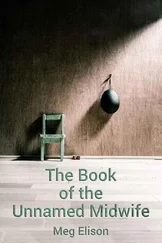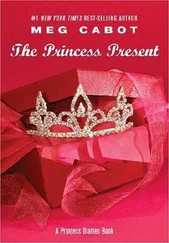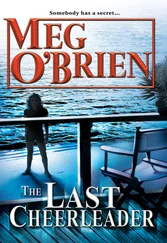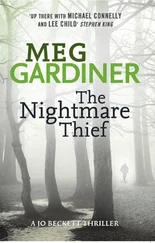What does Helen think?
Helen thinks she is too young to watch herself be surpassed, and too old to be this hungry.
She thinks she is too young to give up her dreams, and too old to want them this much.
But she is both too young and too old, possibly, to change herself. And how many years left on Earth?
Four, maybe.
Helen crosses the lobby, takes the pen, and writes her name on the wall.
Aterrible thing has happened to Mireille: she has been selected as the spa employee of the month. She sits now in the hotel employee cafeteria with Clara and Olive, who are also massage therapists and who have congratulated her with a sincerity that depresses her almost as much as the award. Also, during this lunch break she seems to have eaten not only all of her bread but all of Clara’s. Successful people are either self-deniers who achieve through discipline, or hedonists who never apologize or explain. Successful people are not women who eat too much bread and lament.
It’s only that she wants to be the person she was, for a few minutes, last night. Mireille had made people laugh when she took the floor, so to speak, with a story that began with, “You know, I have to say, I totally blame Anne Frank.” For once she had left a party without the desire to go back and do the whole party over, was almost certain she had nothing to reproach herself with.
“Oh, so I have this thing right now,” Mireille says to Clara and Olive, “where I’m trying to live a minimal lifestyle. Only I just realized the other night that the reason I have trouble throwing anything away has to do with this thing that happened to me when I was six and, you know, I have to say, I totally blame Anne Frank.”
She’s off, she’s a little off, she can already tell the story isn’t going to work as well as it did last night. The setting is wrong now: plastic booths and tables and hotel art relocated down to the cafeteria because of mild damage, and the smell of institutionalized paella. Also, Olive and Clara are different kinds of friends than the people from her acting class. They’re in the healing industry, so neurotic irony has no currency with them the way it does with actors. People who are devoted to aromatherapy are not usually humorists. Mireille has chosen her audience unwisely.
“Okay, so my dad took me to Amsterdam when I was six. He was speaking at some kind of festival and I went with him because…” Mireille appears to search her memory and then rolls her eyes to indicate the ridiculousness of having forgotten this particular detail. “Oh yeah, because my mom was in space .”
She hurries on to the next bit. It goes very badly for her if she tries to enlist sympathy for being the daughter of one of the most admirable women on the planet. If she is pitied, she is pitied wrongly: not for being neglected or eclipsed by her astronaut mother, but for being inadequate and unremarkable in comparison. Mireille doesn’t require a spa employee of the month award to see the truth of that.
“Anyway. We’re in Amsterdam and my dad takes me to the Anne Frank house because, you know, that’s what you do, and my dad’s trying to give me a nice educational experience and distract me from the fact that my mom could blow up at any moment. And that’s the obvious entertainment choice, right? Holocaust museum! No, I totally, totally get it. And I loved going anywhere with my dad.”
Mireille touches the silver star she wears on a chain around her neck. Her friends know that this is what she does when she talks about her dead father; she is ashamed of how theatrical the gesture has become, but can’t stop doing it anyway.
“Right. So, there we are at the Anne Frank Museum. And you can see the diary, and that’s wonderful, of course, because it’s this tremendous document that means so much to so many people. But then there’s all this other stuff. Anne Frank’s pen, and a book that Anne Frank once gave as a present to someone, and a bus pass that Anne Frank once used. And this drawing she had done in school that I completely fixated on. I mean, it’s not a piece of art. It’s not of anything. It’s basically a fancy doodle that she colored in. But, me being me, I became totally obsessed with this idea that a doodle could become important, could be something that people would put under glass and look at, and be incredibly moved by. And so, because of the Anne Frank Museum, I became, like, this slightly morbid six-year-old hoarder .”
Mireille is definitely a little off, because neither Clara nor Olive are laughing, and last night, everybody had laughed. Why has she chosen this moment to act like a clown? Nobody wants to go to the circus at 11:30 a.m.
“The other thing,” Mireille says, “is that there’s a lot in the museum about Miep Gies. She’s the woman who helped hide the family, and found the diary, and even though Meeps was just what my mother called me because she can’t pronounce my real name correctly, I guess I felt this connection to the historical Miep and—”
“Wait. Your mother can’t pronounce your name?” Clara grabs Mireille’s wrist.
Mireille is aware that her eyes are shining and that she could cry in about three seconds if she let herself. But she shouldn’t cry. If you cry as an actor, you rob your audience of the chance to cry for you—that’s practically a law.
“My dad chose the name Mireille. He was French, so he pronounced it the proper Provençal way. I mean, my mom speaks Russian and Japanese fluently, she’s amazing , but she’s super midwestern, so everything comes out a little flat. Anyway, she probably agreed to the name because there was a Russian space station called MIR. It was famously sort of a mess, so, you know, appropriate for me. ”
“Aw,” says Clara.
“You’re not a mess,” says Olive.
These friends are giving Mireille what she wants, but she doesn’t want to be the person who wants what she wants, and so she goes on wanting inaccurately and still her eyes shine.
Last night Mireille had linked the whole Anne Frank story back to her mom being in space, and then done a hilarious impression of one of the videos her mother had shot in space for schoolchildren, demonstrating how to brush your teeth in microgravity, which led to a comically exaggerated imitation of what her mom sounded like when she spoke Russian with a midwestern accent, which naturally caused someone to say: “Wow, so you speak Russian?” which allowed Mireille to describe traveling with her mother to Moscow for a commemorative space thing, and how Mireille had lost her virginity at Star City, a story guaranteed to impress because while everyone had lost their virginity, who else could say they had done it with the son of a cosmonaut in a formerly secret facility a hundred yards from a statue of Laika, the first dog to orbit the Earth?
And she had felt wonderful last night, knowing that she was that person, that person who could tell that story.
The Earth has not even rotated once since that feeling and she has already lost it.
“But I love the name Meeps,” says Clara.
“Me too,” says Olive. “It’s so you.”
• • •
WHERE IS HER STORY? How can she get it back? Mireille remembers Nestor, who took her virginity (or, more honestly, managed to just catch the virginity she heaved at him). She remembers the pine and birch trees of Star City. How she looked up into the dark Russian night and thought that she too was going places.
Mireille has to go now and have her picture taken to commemorate her winning spa employee of the month, before starting her shift. She makes her way down the corridor to Human Resources. The hallway walls are lined with posters spouting motivational slogans and seasonally appropriate puns. Winter Is Almost Over, So Let’s Put a Spring in Our Step!
Читать дальше












